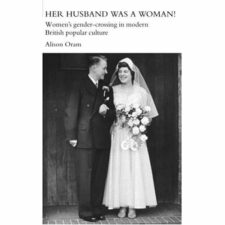In the last week, I attended an Irish Studies conference, where, amongst other things, I attended two papers, both by geographers: one on how research on DNA shapes how we view our national identity and the political consequences for power relationships across racial groups, and another paper on how the meanings attached to the idea of being an ‘island’ create particular understandings of Irishness, which can be subverted if we understand ‘island’ in different ways. And, it struck me, that in both these papers, the question of how we create knowledge and its implications for how we understand ourselves in the future was central to academic practice.
This made me wonder to what extent history is a conservative discipline? Now, in current historical thinking, most historians accept that there is no ‘truth’ in the past that they can access, but rather we are engaging with products created by people with their own perspectives and agendas. As a result, we often focus on various ‘subjectivities’ – how and why people create their own identities, cultures, nations in particular ways. But, while we pay lip service to the fact that historians bring their own identities to the study of history, our belief that we are recapturing something of the past has precluded us from consciously shaping our historical narratives to deal with contemporary issues. At most, we are willing to write conclusions that point to the lessons that can be learned from past examples, but we do not generally frame our use of particular historical techniques as the self-conscious creation of particular forms of knowledge. We are nervous about acknowledging our role as creators of knowledge. Rather, we say that our theory helps bring new perspectives on the past, bringing out ‘truths’ that other theories had left hidden: the replacement of a single truth with multiple truths.
This is perhaps not surprising. The methods of empirical history require a close reading of the artefacts of past societies – products not created by historians, but by people of other times and places. And, to deny the voice of such peoples and to replace it with that of the historian seems contradictory, especially to those like women’s historians, who have actively sought to give voice to those without voice. The products of past societies do not give us unending potentialities of interpretation, but place limits on us, on the histories we create.
Yet, if we seek to give voice to the people of the past, then what is our social function in contemporary society? Women’s history, in particular, has resisted being conservative. The inclusion of women into historical narratives where they had previously been absent was a deliberate and politically motivated challenge to the status quo. Similarly, the application of theories of gender and power to past societies was intended to improve the condition of women in contemporary society, through offering the example of the past. And, in this sense, women’s historians have actively worked towards social reform and social betterment. But, as we move forward, can a discipline that is by its nature backward-looking ever have truly radical potential? Do the restraints created by those past voices stop historians from contributing to a reimagining of the future? To the creation of our future selves? And, if this is possible, what does it mean for how we practice history?
Katie Barclay ponders this question as she writes history, wondering whether a historian is always a social commentator or has the potential to be a historical actor in her own right? She hopes for a positive resolution to these questions in the comments!
